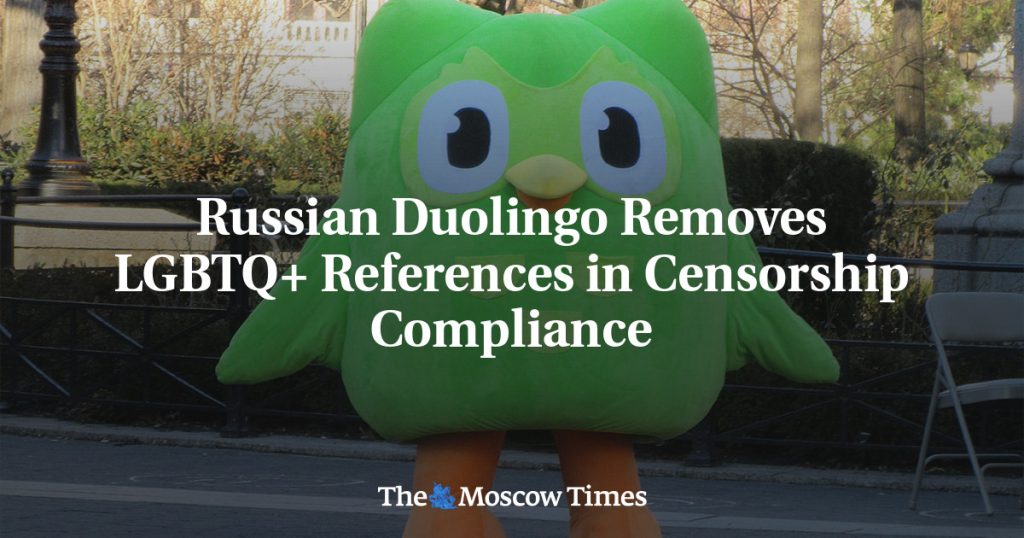The popular language learning platform Duolingo has removed references to LGBTQ+ people in its Russian version at Moscow’s request to comply with Russia’s “LGBT propaganda” law. The state media watchdog Roskomnadzor had ordered Duolingo to remove phrases like “Ben and Peter love each other” and “Clara met her wife Maria at a lesbian bar” or face a fine or potential ban. Duolingo confirmed that it had removed materials promoting non-traditional sexual relations from the app in response to the order, but the report has not been independently verified.
Russia has had a ban on the “propaganda of non-traditional sexual relations” towards minors since 2013, and this was expanded a decade later to outlaw public displays of non-traditional relationships and lifestyles to people of any age. Rights groups have criticized the government for the vague criteria around what constitutes “gay propaganda,” warning that TV channels and websites could be fined arbitrarily. Since the invasion of Ukraine in 2022, President Vladimir Putin has increased suppression of the LGBTQ+ community as part of a broader “culture war” with the West. Duolingo had disabled monetization in Russia and Belarus in solidarity with Ukraine in the same year.
In late 2021, Russia’s Supreme Court designated the non-existent “international LGBT movement” as “extremist,” effectively criminalizing LGBTQ+ activism in the country. The Russian government has faced criticism for its treatment of the LGBTQ+ community and lack of defined regulations around gay propaganda. Critics argue that the suppression of LGBTQ+ rights is part of a larger crackdown on dissent and freedom of expression in the country. The move by Duolingo to remove references to LGBTQ+ people in its Russian version highlights the challenges faced by companies operating in Russia under these restrictive laws.
The suppression of LGBTQ+ rights in Russia has been a long-standing issue, with the government cracking down on non-traditional relationships and lifestyles both in media and public spaces. The broader culture war with the West and the conflict in Ukraine have intensified these measures, leading to increased restrictions on LGBTQ+ activism and expression. The move by Duolingo to comply with Russia’s request to remove LGBTQ+ content from its platform underscores the challenges faced by companies navigating the complex regulatory environment in the country. The situation highlights the importance of upholding free expression and human rights for all individuals, including the LGBTQ+ community, in Russia and beyond.
The response to Moscow’s request by Duolingo reflects the difficult choices faced by companies operating in countries with restrictive laws that conflict with their values. The decision to remove LGBTQ+ content from the app in Russia raises questions about corporate responsibility, freedom of expression, and the protection of LGBTQ+ rights in challenging environments. The situation also underscores the broader crackdown on dissent and independent media in Russia, with organizations like The Moscow Times facing pressure and restrictions from the government. In such contexts, support for independent journalism and upholding the principles of free speech become even more crucial to ensure diverse voices are heard and respected.


